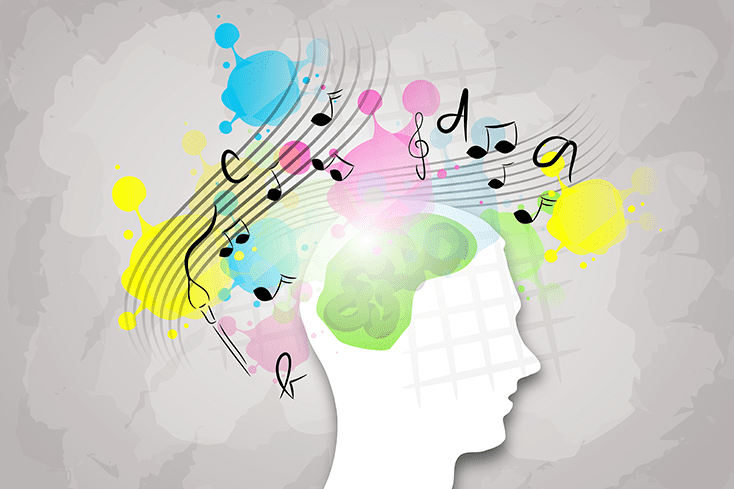
Dr Sathiya Ganesan’s
From Silence to Song – Where Every Note Helps a Child Heal.
Healing Through Rhythm, Melody, and Emotion – A Creative Path to Mental Wellness
Music speaks to the heart when words fall short. For many children and teens, music becomes a powerful outlet for emotion, expression, and healing.
Music Therapy is a research-based, expressive therapy that uses rhythm, melody, and sound to help young minds cope with emotional challenges, process trauma, and improve cognitive and social functioning.
Dr. Sathiya Ganesan, Consultant in Child and Adolescent Psychiatry, integrates Music Therapy into personalised care plans, offering children a safe, creative way to express what they feel and grow emotionally.
Understanding Music Therapy
When Emotions Find Their Voice in Music

Music Therapy is a structured clinical practice where certified music therapists use singing, listening, playing instruments, and musical improvisation to help children express and manage their emotions. It is especially effective for children who are non-verbal, withdrawn, anxious, or have difficulty regulating feelings through words alone.
Music Therapy is helpful for children facing:
- Anxiety, stress, and mood disorders
- Autism Spectrum Disorder (ASD)
- ADHD and behavioral issues
- Developmental delays and learning disabilities
- Trauma, grief, or emotional dysregulation
- Communication and social skill deficits
- Low self-esteem or emotional suppression
Whether through a simple beat or a favorite song, music becomes the bridge between inner feelings and outer healing.
Signs That a Child May Benefit from Music Therapy
- Difficulty expressing emotions verbally
- Social withdrawal or limited interaction
- Sensory sensitivities or hyperactivity
- Mood swings, anger, or sadness
- Attention or concentration issues
- Resistance to traditional talk therapy
- A strong response to music or rhythm
Music Therapy offers a gentle, enjoyable, and emotionally accessible way for children to explore and regulate their feelings.
What Happens in Music Therapy?
Music Therapy sessions are structured yet playful and may include:
- Singing familiar songs to promote communication
- Playing instruments to release energy and emotion
- Creating original music or lyrics
- Guided relaxation with calming music
- Movement and dance for emotional expression
- Music-based storytelling to explore feelings
- Listening to therapeutic music to reduce anxiety
Each session is customized to the child’s emotional, cognitive, and developmental needs.
Benefits of Music Therapy
- Enhances emotional regulation and self-expression
- Improves attention, memory, and cognitive skills
- Builds social connection and peer interaction
- Reduces anxiety, agitation, and restlessness
- Boosts confidence and creativity
- Promotes calmness, especially in sensory-sensitive children
Music Therapy is not just recreational — it’s a structured path to emotional healing through rhythm and connection.
Integrated Therapy for Holistic Care
Dr. Ganesan integrates Music Therapy into treatment for:
- Autism and sensory integration issues
- Trauma recovery and anxiety disorders
- Depression and mood instability
- Non-verbal or withdrawn children
- Children facing academic or behavioral stress
Music Therapy complements other modalities such as CBT, play therapy, art therapy, occupational therapy, and psychiatric care, ensuring a well-rounded approach to mental and emotional well-being.
Parent Involvement and Home Music Support
Parents are encouraged to:
- Use music at home for calming routines
- Observe how music affects the child’s mood and energy
- Create playlists that support emotional regulation
- Engage in simple, fun music-based activities together
Dr. Ganesan and the therapy team provide guidance to reinforce emotional healing through shared music experiences at home.
School Collaboration and Music-Based Learning Support
Music Therapy also supports classroom participation by:
- Improving focus and listening skills
- Enhancing group cooperation through rhythm and movement
- Reducing classroom anxiety or emotional meltdowns
- Supporting transitions and routine changes through song cues
With school involvement, children experience more consistent support across all environments.
Online Consultations and Music Therapy Planning
While Music Therapy is best delivered in-person, Dr. Sathiya Ganesan offers online consultations for:
- Planning home-based music routines
- Coaching parents and caregivers
- Reviewing emotional goals and therapy progress
- Integrating music into broader treatment plans

Why Choose Music Therapy with Dr. Sathiya Ganesan?
With a deep understanding of emotional development and child behavior, Dr. Sathiya Ganesan brings Music Therapy into his holistic psychiatric approach to:
- Connect with children at an emotional level
- Provide healing that feels joyful and engaging
- Support non-verbal, anxious, or resistant children
- Encourage safe, expressive emotional release through sound
Music becomes a safe space where children find rhythm, regulation, and their own emotional voice.
Let Music Be Their Therapy and Their Strength
If your child lights up at music or finds calm in a melody, Music Therapy may be their path to emotional growth and healing. Contact Dr. Sathiya Ganesan today to explore how Music Therapy can become a harmonious part of your child’s wellness journey.
Does my child need to be musically trained?
No. Music Therapy is about emotional expression, not performance. No musical skills are required.
Can Music Therapy help children with autism?
Yes. Music Therapy is especially effective in building communication, reducing sensory overload, and improving emotional regulation in children with autism.
Is Music Therapy only for young children?
No. It is beneficial for all age groups, including adolescents, especially those who respond strongly to music or prefer non-verbal communication.
Can music be used at home to support emotional well-being?
Yes. Dr. Ganesan provides personalized music routines and strategies that families can use at home to support emotional growth and calm.
Is Music Therapy a substitute for psychiatric care?
It’s a complement — not a substitute. Music Therapy is part of a holistic treatment plan alongside other therapies and, if necessary, medication.


